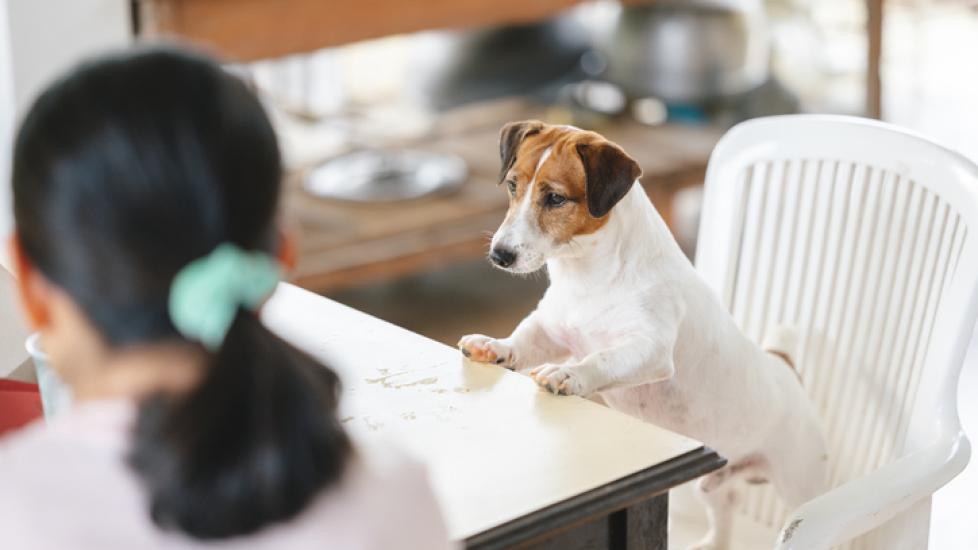Can Dogs Eat Cabbage?
NOTE: Always check with your veterinarian first before giving your dog any new foods, especially “people foods.” What might be OK for one dog might not be good for your dog, depending on multiple factors, such as their age, health history, health conditions, and diet. Dogs on prescription diets should not be fed any food or treats outside the diet.
Cabbage might not be the first “human food” your dog begs to taste, but if your hungry hound is interested in everything you’re eating, you may find yourself wondering if you can share. But can dogs eat cabbage and be OK?
Good news: Cabbage is considered safe for dogs to eat! Along with other cruciferous veggies such asbroccoli,cauliflower, andBrussels sprouts, cabbage is fine to snack on with your dog. Just be sure to start slow and limit their intake, since the high fiber and water content can cause an upset stomach if your pup has too much.
Is Cabbage Good for Dogs?
As a low-calorie vegetable that’shigh in fiberand a goodsource of potassiumand other vitamins, cabbage can be a healthy addition to your dog’s diet. Cabbage is also a great source of antioxidants, which can help boost your dog’s immune system.
Both red and green cabbage is fine for dogs to eat, thoughred cabbagecontains more vitamins and minerals than the green variety. However, all types of cabbage are safe for dogs to eat and can be a good nutrient-dense addition to theirwell-balanced dog food diet.
A small amount of cooked cabbage cut into tiny pieces is a healthy addition to your dog’s food bowl, especially if your vet recommended adding morevegetables to your dog’s diet. Just be careful to avoid adding any seasonings or spices when cooking—especiallygarlicoronions, as these are toxic for dogs.
Can Cabbage Be Bad for Dogs?
While cabbage is generally safe for dogs, there can be some drawbacks to feeding your dog this veggie. Namely, cabbage cancause your pup to have gasthat may lead to discomfort and bloating (not to mention a stinky house). It’s always best to introduce cabbage slowly and in small amounts, especially if your dog has a sensitive stomach. Cooking the cabbage may help your pooch digest it more easily.
Additionally, cabbage contains a compound calledthiocyanate, which can interfere with thyroid function if consumed in large amounts. But this is unlikely to be an issue unless your dog eats ahugeamount of cabbage on a regular basis.
Can Dogs Eat Raw Cabbage?
Raw cabbage may be harder for your dog to digest than cooked cabbage. A little bit probably won’t cause Fido any harm, but it may make unpleasant after-effects like gas worse than if it were softened. Boiled or steamed cabbage will be easier on your dog’s stomach.
How to Safely Prepare Cabbage for Dogs
When preparing cabbage for a dog, thoroughly wash it and remove the tough stem and core of the cabbage (these are difficult for your dog to digest). Steam or boil it without any seasonings or spices. Once it's cooled, cut the cabbage into tiny, bite-sized pieces to make it easier for your dog to eat and avoid a potentialchoking hazard.
尝试将一个小,首席运营官ked, plain bite of cabbage as a food topper, or mix it with their usual food. Monitor your dog's reaction for any signs of digestive upset or food intolerance.
How Much Cabbage Can Dogs Eat?
While cabbage offers plenty of nutritional benefits for dogs, they should only get this vegetable in moderation. The same goes for any veggie—giving a dog too much can lead to digestive issues such as gas,diarrhea, andvomiting.
Here are some general portion guidelines to follow if you’re introducing cooked cabbage to a healthy, adult dog:
Extra-small dog (2–20 pounds) = 1 teaspoon or less
Examples:Yorkies,Chihuahuas,Pomeranians,Pugs
Small dog (21-–30 pounds) = 1–2 teaspoons
Medium dog (31–50 pounds) = 1 tablespoon
Large dog (51–90 pounds) = 1–2 tablespoons
Extra-large dog (91+ pounds) = ¼ cup or less
What Other Vegetables Can Dogs Eat?
Some other leafy greens and veggies that are considered safe for dogs to eat include:
Spinach(while generally considered safe, dogs with kidney issues should avoid this, as it’s high inoxalates)
Even though cabbage and many other vegetables are safe for dogs to eat, the majority of their diet should come from a well-balanced dog food.
Remember that not all vegetables are safe for dogs to eat. Onions, garlic, and chives should all be avoided, as they are toxic to dogs. Again, always talk to your vet before introducing new foods to your dog, as they may have dietary advice tailored to your dog based on their health, age, and weight.
Featured Image: iStock/primeimages
Help us make PetMD better
Was this article helpful?

